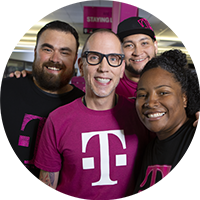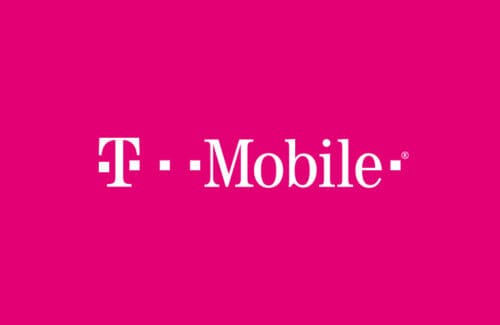15 Days per Year of Free Time Unknowingly Given Back to Office by Some. Organizing Guru Peter Walsh Of TLC's Clean Sweep Offers Tips for Getting After-Hours 'Must-Do's' Done Quickly and Reclaiming Free Time For Family, Friends, Fun
Bellevue — Oct. 14, 2004
Quick question: When was the last time you took a full hour at lunch? Or, enjoyed an evening or weekend without some sort of work interruption?
Whether you call it "free time," "me time," or "personal time," a new survey commissioned by T-Mobile USA, Inc. and conducted by Harris Interactive® of U.S. adults with online access reveals that more than half (60%) of those who are employed report spending up to an hour of time daily - such as before and after work and during lunch -- answering work e-mails and phone calls.
"For those devoting a full hour of supposedly free time daily to office matters, that's the equivalent of 15.2 additional days of work each year," according to Peter Walsh, the organizer on TLC's hit show Clean Sweep and author of the January release How to Organize (Just About) Everything (Simon & Schuster). He further put it in perspective by adding, "That's the same as three full work weeks of extra time on the job."
Walsh, who was retained by T-Mobile to help develop and comment on the survey, said the results reflect what he encounters as a consultant to companies and harried individuals. "People want to find more hours in the day to devote to personal interests and priorities," he said.
Because his clients often discuss the difficulty of striking a comfortable balance between work and the rest of their lives, Walsh suggested that T-Mobile include a question asking respondents about the subject. The findings mirrored what he hears regularly: 42% of employed U.S. adults, with online access, wish they could better balance their work and home lives.
Other Findings from the T-Mobile/Harris Interactive Survey
"No thanks, I'll handle it (or not) myself."
All respondents were asked to respond to the following hypothetical statement: If money were no object, I would like to have a personal assistant to manage my calendar, update my address book, keep track of birthdays, remind me to return calls and generally help me be better organized and on time.
Half (51%) of online U.S. adults said they would not want a personal assistant, which partially surprised Walsh and partially did not. "On the one hand, people want to outsource solving their time-management and organizing problems. They bemoan their lack of personal hours and personal space," he said. "But on the other hand, when I propose a solution I see time and again that many people have a paradoxical attachment to the clutter that clogs their schedule, their offices, their cars, and their homes."
Walsh further elaborated that "letting go of piles of paper, clothes that are never worn, and broken appliances is so difficult for some people that they'll live with the mess and the negative impact on their quality of life rather than deal with it head on."
"Oops, honey. I forgot."
Half (48%) of online U.S. adults admitted forgetting to run a promised errand for their significant other, with forgetfulness fairly equal between the genders. "With proper reminder tools, this number could drop substantially," Walsh said, "And I venture that fewer forgotten errands would reduce the number of spats between couples, as well."
"Why carry one item when I can carry two or more?"
Two-thirds of online U.S. adults (67%) carry a mobile phone and at least one other organizing item, such as a calendar, notebook, or address book. Walsh describes this as "a case of good organizing intentions with less than optimal outcomes. Not only does it waste time to root around in a cluttered bag or briefcase looking for multiple items, it also means lugging around additional weight."
Peter Walsh's Top Tips for Reclaiming Personal Time and Banishing Clutter
Walsh advocates becoming better organized as the most effective ways to create more free time. "With the proper tools and a bit of discipline, I've seen formerly frantic clients reclaim 'lost' time," said Walsh. "Suddenly, they're able to recharge their batteries by taking a much needed lunch break sitting in the park, for example."
The tool Walsh recommends for quickly responding to after-hours calls and e-mails is the new BlackBerry® 7100t from T-Mobile - which provides phone, calendar, address book, to-do list and more - all in one great-looking, lightweight and easy-to-use device. "I can reply to a pressing e-mail without booting up my home PC, or return a call without having to dig around for the phone.
"People who are organized and efficient with their time and space are made, not born," says Walsh. "Tape this list to your fridge or your computer monitor and you're halfway there," he adds, "as long as you actually put the tips into practice, that is."
1. Streamline. "Quit sabotaging yourself by using several systems for tracking similar information," Walsh advises. A common mistake Walsh sees is having a calendar at work and one at home. Or keeping track of two address books - one for business and one for personal contacts. "Consolidate. Consolidate. Consolidate," he says.
2. Minimize work interruptions during personal time. "Take care of what needs to be done, quickly, then get back to what you would be doing during that free time," says Walsh. "Don't spend an hour tonight doing something that you could take care at the office tomorrow."
3. Employ the buddy system. "Whether you're clearing out a closet or inputting six months of expense reports, enlist a friend to help you out," says Walsh, who suggests that a partner can help you sort and process items far more quickly. "It will go faster with two people and you're more likely to stay focused on the activity."
4. Choose tools you'll enjoy using. "It will make your organizing endeavors easier and more fun if the gear you use puts a smile on your face," Walsh says. "Look for items that have beauty and brains - such as the hard-working and great-looking Blackberry 7100t from T-Mobile. You'll feel cool using it and between its 20,000 word vocabulary and unique ability to 'learn' unusually-spelled proper names, it's a truly a 'smart' device."
5. Establish a maintenance plan and stick with it. "Be diligent every day about taking care of the little tasks that keep clutter at bay. Otherwise, you'll soon be back where you started," says Walsh. "These systems don't run on autopilot. If you backslide, you'll soon be burning the midnight oil on a work project all over again."
Walsh's last word of advice? "Relax. It may take a few rounds of trying to better manage your time and clutter before you get the hang of it, but you will master it eventually. I assure you."
Survey Methodology
Harris Interactive® fielded the survey from September 21-23, 2004, via its QuickQuery online omnibus interviewing a nationwide sample of 2,267 U.S. adults (aged 18+), of whom 1,448 are employed. Data were weighted to reflect the total U.S. online adult population on the basis of region, age within gender, education, household income, race/ethnicity, and amount of time spent online. In theory, with a probability sample of this size, one can say with 95 percent certainty that the results have a statistical precision of plus or minus 3 percentage points for the overall sample. The results for the U.S. employed adults with online access sample has a statistical precision of plus or minus 4 percentage points of what they would be if the entire U.S. employed adult population with online access had been polled with complete accuracy. This online sample was not a probability sample.
Lindsay Morio
T-Mobile USA Media Relations
425-383-4002
About T-Mobile USA, Inc.
Based in Bellevue, Wash., T-Mobile USA, Inc. is the U.S. wireless operation of Deutsche Telekom AG. By the end of the first quarter of 2010, approximately 150 million mobile customers were served by the mobile communication segments of the Deutsche Telekom group - 33.7 million by T-Mobile USA - all via a common technology platform based on GSM and UMTS, the world's most widely used digital wireless standards. T-Mobile USA's innovative wireless products and services help empower people to connect to those who matter most. Multiple independent research studies continue to rank T-Mobile among the highest in numerous regions throughout the U.S. in wireless customer care and call quality. For more information, please visit http://www.T-Mobile.com. T-Mobile is a federally registered trademark of Deutsche Telekom AG.

